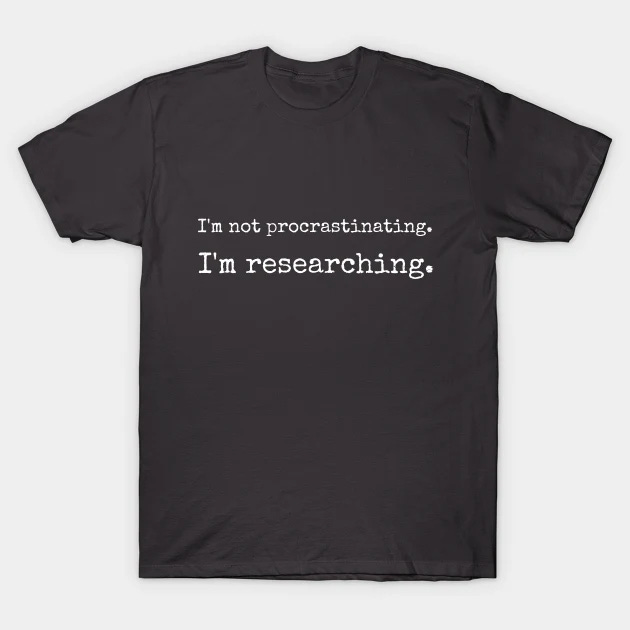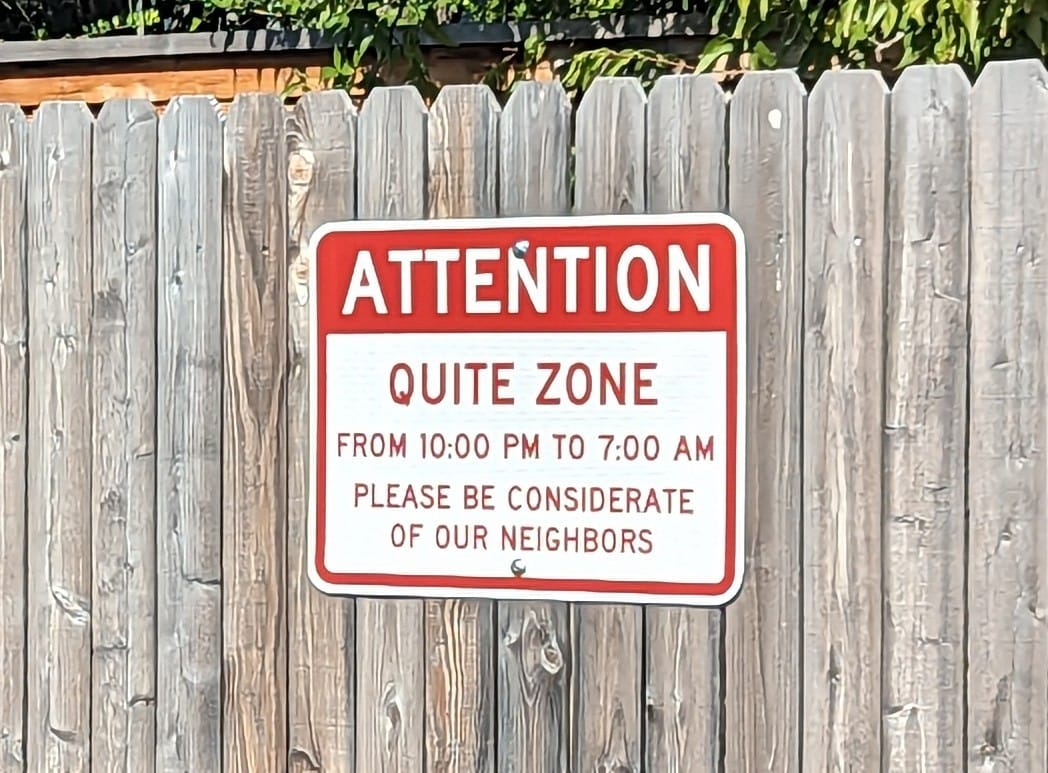👋 Welcome to Better Writing
I’m Blake Atwood, a nonfiction editor, author, and ghostwriter. My literary claim to nominal fame is as an early developmental editor on Atomic Habits, but I’ve worked on more than 60 books, including a few of my own. If this was forwarded to you and you’d like to subscribe, please do so below.
🎯 1 quick hit
If you’re in DFW, consider attending one or both days of DFWCon Oct. 7–8. I’m leading a class each day, one on nonfiction proposal writing and one on “atomic habits” for nonfiction authors. But I encourage you to look through the class list. (You may need to select “Schedule > Expanded view” for class descriptions.) I hope to attend more than a few myself—including the keynotes from Dave Eggers and Evangeline Lilly.
Don’t break your brain
“It is perfectly okay to write garbage as long as you edit brilliantly.” —C. J. Cherryh
What is an editor?
If you’re a new writer or unfamiliar with the business of writing, you may think that an editor only fixes grammar and spelling issues.
You would be somewhat correct.
Broadly speaking, an editor may be an acquisitions editor, a copyeditor,1 or a developmental editor.
Acquisitions editors are traditional publishing professionals who acquire books from agents. They may edit some of the book, but they’re mostly that book’s champion within their publishing house.
Copyeditors fix grammar and spelling, but they do more than just delete comma abuses. A copyeditor looks at your sentence-level problems.
Developmental editors don’t concern themselves with the rules of grammar. Rather, they want to ensure you’re telling a compelling story. A developmental editor looks at your book-level problems.
I provided further definitions of these specific types of editors in my short book on editing, Don’t Fear the Reaper: Why Every Author Needs an Editor. (As far as I know, you can’t plagiarize yourself.)
Copyeditors look for errors in spelling, grammar, punctuation, capitalization, word usage, and formatting. In some instances, they will also fact-check.
Essentially, copyeditors ensure that you’re using your and you’re correctly and that you adhere to a stylebook (for example, The Chicago Manual of Style for most books). They identify hundreds of issues that writers may gloss over, especially when furiously writing their first (or second, or third) draft.
Some copyeditors will take a strict “no write” approach to an author’s work. They’ll fix issues without rewriting or rearranging sentences. Other copyeditors may suggest better ways to phrase a sentence, or even rewrite sentences with the author’s permission.
The best copyeditors seek to rid your manuscript of errors while making it more readable. They also serve to enhance the author’s voice and refuse to allow their personal style to overtake a book.
Copyeditors are not developmental editors or proofreaders, although some copyeditors may offer such services as part of their editing packages.
Developmental editors look at the big picture of the book and suggest changes in structure, tone, plot, characters, or concept. They’re not concerned with the grammatical errors of your book; rather, they want to ensure the story you’re telling is engaging and makes sense. They may even help you plot your story before you’ve started writing.
Now, you may be thinking: That’s all well and good, but I don’t want to be an editor. What does this have to do with making me a better writer?
An essential key to better self-editing
When self-editing, if you try to look at the big picture and the small picture at the same time, you will break your brain.
And I don’t want you to break your brain.
If you try to simultaneously conduct a developmental edit and a copyedit, you will go mad.
The halves of your brain will initiate a civil war and neither side will win.
Or you will zoom in and out, from story structure to syntax errors and back again, to the point of nausea.
Developmental editing engages your creativity; copyediting is technical. You’ll do yourself and your manuscript a disservice if you try to do both at the same time.
Cut back the forest before whittling the trees
When you begin your self-editing phase, take at least two passes. Don different hats on each pass.
After you’ve rested your manuscript and you’ve set a challenging but achievable deadline for completing your edits, start your first self-editing pass with your developmental editor hat firmly on your head.
Try to read through your manuscript as if you’re just a reader.
Print out your manuscript and mark up the moments when you get bored, distracted, or confused. To lessen the drudgery, highlight your favorite parts too.
The goal of this initial read is to make yourself aware of any developmental problems you may have. You could also employ trusted, experienced, knowledgeable beta readers to give you an impartial read—or at least as impartial as they can get.
After this developmental editing pass, you may feel that your book isn’t working for some reason. You may not have a clue as to why. That’s where hiring a developmental editor may help you.2
Once you’ve finished your developmental edit to the best of your ability, maybe even with multiple passes, and you have your manuscript to a mostly acceptable level with regards to the story you’re telling, that’s when you should make another editing pass—except this time you’ll put on your copyeditor hat.
That’s when you’ll clean up your manuscript from too many exclamation points and double-spaces after periods. That may be where you notice how often you begin sentences with “There is” or “There are.” This is the edit where grammar rules ought to rule.
Is it absolutely necessary to make these two passes when self-editing?
No.
You can, of course, pay a developmental editor and a copyeditor to do these things for you.
And I will always advocate for hiring professional editors to help you create your best possible manuscript before publishing it or sending it to an agent.
But when you put in the hard work of going through these editing passes before hiring a pro, you will grow as a writer—maybe even exponentially.
And the next time you write anything, you will have remembered the mistakes you caught while editing.
But only if you haven’t broken your brain while trying to do both types of editing at the same time.
You’ve been warned!
I recently enabled REFERRAL REWARDS so you’ll earn something (hopefully beneficial) when you refer other writers to this newsletter.
👕 Featured writer T-shirt
So, selling novelty T-shirts for writers will make you about as much money as an ebook per sale. In other words, I sold my first writers' T-shirt a few days ago. I made $2. They purchased the shirt above.
I have questions.
Did they buy it for a friend? Was it a passive-aggressive purchase? Or a gentle, caring nudge?
Or did they buy it for themselves . . . while they were procrastinating researching?
Either way, thanks for the purchase! (View all of the ridiculous T-shirts here.)
💻 Previous articles
👍 Recommended Substacks
‼️ In the wild
I spotted this atrocity while walking in Dallas while my son was in acting class. I want to give them the benefit of the doubt. Maybe they mistakenly transposed the T and E, an hontse mistake. Because if there’s any word that’s ripe for misspelling on that sign, it’s considerate.
Writers, please be considerate of your neighbors: use spell-check, but hire a proofreader.
🧹 Housekeeping
Always feel free to reply to these emails. I read them and try to answer within 2 business days.
As an Amazon Associate, I earn from qualifying purchases.
Does a copyeditor copy edit or does a copy editor copyedit? If you’re reading this endnote, then I’ll refer you to ACES’ “I say copyedit, you say copy edit,” which also answers how I choose to write copyedit, copyediting, and copyeditor.
The best developmental editor I know is Amber Helt with RootedInWriting.com, especially if you’re writing fiction, and particularly if your genre is speculative fiction. For nonfiction, I offer developmental help on a limited basis but am currently closed to new projects. That said, I recently published more editor recommendations here.






"When self-editing, if you try to look at the big picture and the small picture at the same time, you will break your brain."
Blake, this is so true! It's easy to just say "I'm editing," but that's not fair to your brain. Saying, "I'm working on the first pass of developmental edits" is specific and gives the writer/self-editor so much more clarity.